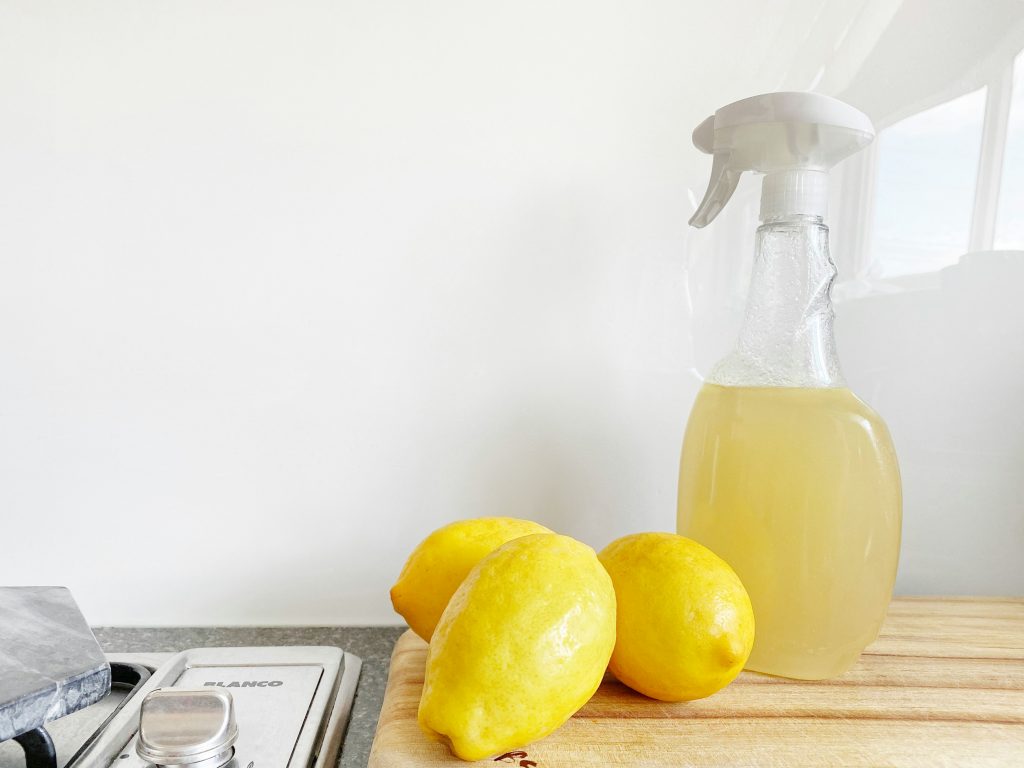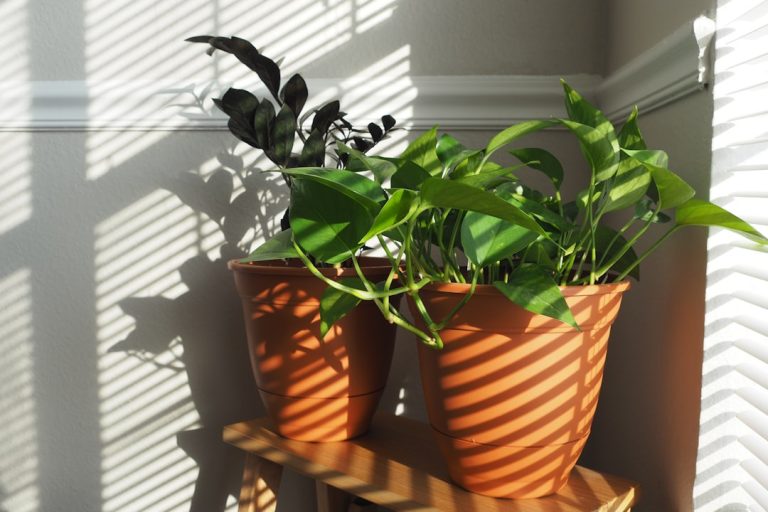Eco-friendly cleaning products have become increasingly popular in recent years as people become more aware of the impact traditional cleaning products can have on the environment and human health. These products are made from natural, non-toxic ingredients that are safe for both people and the planet. By using eco-friendly cleaning products, you can reduce your carbon footprint, improve indoor air quality, and save money in the long run.
Key Takeaways
- Using eco-friendly cleaning products benefits both the environment and your health.
- Sustainable cleaning involves using products that are biodegradable, non-toxic, and made from renewable resources.
- Common chemicals to avoid in cleaning products include phthalates, triclosan, and ammonia.
- Eco-friendly cleaning products are available for different surfaces, such as floors, windows, and countertops.
- DIY eco-friendly cleaning solutions can be made using simple ingredients like vinegar, baking soda, and lemon juice.
Benefits of Using Eco-Friendly Cleaning Products
One of the main benefits of using eco-friendly cleaning products is their positive impact on the environment. Traditional cleaning products often contain harmful chemicals that can pollute waterways and contribute to air pollution. Eco-friendly cleaning products, on the other hand, are made from renewable resources and biodegradable ingredients that break down safely in the environment.
In addition to being better for the planet, eco-friendly cleaning products are also better for your health. Traditional cleaning products often contain harsh chemicals that can irritate the skin, eyes, and respiratory system. They can also release volatile organic compounds (VOCs) into the air, which can contribute to indoor air pollution and respiratory problems. By using eco-friendly cleaning products, you can reduce your exposure to these harmful chemicals and improve the indoor air quality in your home.
While eco-friendly cleaning products may have a slightly higher upfront cost compared to traditional cleaning products, they can actually save you money in the long run. Many eco-friendly cleaning products are concentrated, meaning you only need to use a small amount to get the job done. This means that a single bottle of eco-friendly cleaner can last much longer than a traditional cleaner, saving you money over time.
Understanding Sustainable Cleaning
Sustainable cleaning refers to the use of cleaning practices and products that minimize negative impacts on the environment and human health. It involves using non-toxic, biodegradable ingredients that are sourced sustainably and produced in an environmentally responsible manner.
Traditional cleaning products often contain chemicals that can have a detrimental impact on the environment. When these products are used and disposed of, the chemicals can end up in waterways, where they can harm aquatic life and contaminate drinking water sources. Additionally, the production of these chemicals can contribute to air pollution and greenhouse gas emissions.
Not only do traditional cleaning products harm the environment, but they can also have negative effects on human health. Many of the chemicals found in these products have been linked to respiratory problems, skin irritation, and even more serious health issues like cancer and reproductive disorders. By using sustainable cleaning products, you can reduce your exposure to these harmful chemicals and protect your health.
Common Chemicals to Avoid in Cleaning Products
| Chemical Name | Potential Health Effects | Commonly Found In |
|---|---|---|
| Phthalates | Hormone disruption, reproductive problems, asthma | Fragrances, air fresheners, vinyl flooring |
| Triclosan | Hormone disruption, bacterial resistance | Antibacterial soaps, toothpaste, deodorants |
| 2-Butoxyethanol | Respiratory problems, liver and kidney damage | Glass cleaners, degreasers, oven cleaners |
| Ammonia | Respiratory problems, skin irritation | Glass cleaners, oven cleaners, floor cleaners |
| Chlorine | Respiratory problems, skin irritation, eye damage | Toilet bowl cleaners, disinfectants, bleach |
There are several harmful chemicals commonly found in traditional cleaning products that you should avoid. These include:
1. Phthalates: Phthalates are a group of chemicals used to soften plastics and make fragrances last longer. They have been linked to hormone disruption, reproductive problems, and asthma.
2. Triclosan: Triclosan is an antibacterial agent commonly found in hand soaps and dishwashing detergents. It has been linked to hormone disruption and the development of antibiotic-resistant bacteria.
3. Ammonia: Ammonia is a strong irritant that can cause respiratory problems and skin irritation. It is commonly found in glass cleaners and oven cleaners.
4. Sodium Lauryl Sulfate (SLS): SLS is a surfactant that is used to create lather in cleaning products. It can irritate the skin and eyes, and has been linked to organ toxicity.
5. Formaldehyde: Formaldehyde is a known carcinogen that is often used as a preservative in cleaning products. It can cause respiratory problems, skin irritation, and allergic reactions.
These chemicals can have serious health effects, so it’s important to choose cleaning products that are free from them.
Eco-Friendly Cleaning Products for Different Surfaces
There are a wide variety of eco-friendly cleaning products available for different surfaces in your home. Here are some of the best brands and products to use:
1. Floors: For hardwood floors, look for eco-friendly floor cleaners that are specifically formulated for wood surfaces. Brands like Method and Mrs. Meyer’s offer effective and environmentally friendly options. For tile or laminate floors, a mixture of vinegar and water can be used as a natural cleaner.
2. Countertops: For granite or marble countertops, look for eco-friendly cleaners that are pH-neutral and specifically formulated for stone surfaces. Brands like Seventh Generation and Ecover offer great options. For laminate or stainless steel countertops, a mixture of water and mild dish soap can be used.
3. Windows: For streak-free windows, look for eco-friendly glass cleaners that are ammonia-free. Brands like Better Life and ECOS offer effective and non-toxic options. Alternatively, a mixture of vinegar and water can be used as a natural window cleaner.
DIY Eco-Friendly Cleaning Solutions

Making your own eco-friendly cleaning solutions at home is not only cost-effective, but it also allows you to have full control over the ingredients you are using. Here are some simple recipes for making your own cleaning solutions:
1. All-Purpose Cleaner: Mix equal parts water and white vinegar in a spray bottle. Add a few drops of your favorite essential oil for a pleasant scent.
2. Bathroom Cleaner: Mix equal parts water and baking soda to form a paste. Apply the paste to the surfaces you want to clean, let it sit for a few minutes, then scrub with a sponge or brush.
3. Glass Cleaner: Mix equal parts water and rubbing alcohol in a spray bottle. Add a few drops of dish soap and shake well before using.
4. Floor Cleaner: Mix 1 cup of white vinegar with 1 gallon of warm water. Add a few drops of your favorite essential oil for a pleasant scent.
Making your own cleaning solutions not only reduces your exposure to harmful chemicals, but it also reduces waste by eliminating the need for single-use plastic bottles.
How to Read Labels and Choose the Right Eco-Friendly Cleaning Product
When choosing eco-friendly cleaning products, it’s important to read labels carefully to ensure that the product meets your criteria. Here are some tips for reading labels and choosing the right product:
1. Look for certifications: Look for third-party certifications like the EPA’s Safer Choice label or the Green Seal certification. These certifications indicate that the product has been independently tested and meets certain environmental and health standards.
2. Avoid greenwashing: Be wary of products that claim to be “natural” or “green” without any supporting evidence. Look for specific information about the ingredients used and any certifications the product has received.
3. Check for transparency: Look for products that provide a full list of ingredients on the label. Avoid products that use vague terms like “fragrance” or “cleaning agents” without specifying what they are.
4. Consider packaging: Look for products that use minimal packaging and are made from recycled or recyclable materials. Avoid products that use excessive plastic packaging or single-use containers.
By reading labels carefully and choosing products that meet your criteria, you can ensure that you are making an informed decision and selecting the most eco-friendly option.
The Importance of Proper Disposal of Cleaning Products
Proper disposal of cleaning products is crucial to prevent them from polluting waterways and harming the environment. Here are some tips for disposing of cleaning products safely and responsibly:
1. Follow local regulations: Check with your local waste management facility to find out how to properly dispose of cleaning products in your area. Some areas have specific guidelines for disposing of hazardous materials.
2. Don’t pour down the drain: Avoid pouring cleaning products down the drain, as they can contaminate waterways and harm aquatic life. Instead, look for disposal options like household hazardous waste collection events or drop-off locations.
3. Use up the product: If you have a small amount of cleaning product left, try to use it up rather than throwing it away. Dilute it with water or use it for cleaning tasks that require a stronger solution.
4. Recycle packaging: If the packaging is recyclable, be sure to rinse it out and recycle it properly. Check with your local recycling facility to find out what types of packaging they accept.
By disposing of cleaning products properly, you can help protect the environment and prevent pollution.
Eco-Friendly Cleaning Products for Commercial Use
Using eco-friendly cleaning products in commercial settings can have numerous benefits. Not only do these products reduce the environmental impact of cleaning practices, but they also create a healthier and safer environment for employees and customers. Here are some of the best brands and products for commercial use:
1. Seventh Generation: Seventh Generation offers a wide range of eco-friendly cleaning products for commercial use, including all-purpose cleaners, bathroom cleaners, and floor cleaners.
2. Method: Method is known for its stylish and effective eco-friendly cleaning products. They offer a variety of options for commercial use, including hand soaps, dish soaps, and surface cleaners.
3. Ecover: Ecover offers a range of eco-friendly cleaning products that are specifically formulated for commercial use. Their products are made from plant-based ingredients and are biodegradable.
Using eco-friendly cleaning products in commercial settings not only reduces the environmental impact of cleaning practices, but it also sends a positive message to customers and employees about your commitment to sustainability.
Making the Switch to Sustainable Cleaning
In conclusion, using eco-friendly cleaning products is not only better for the environment, but it also has numerous benefits for your health and wallet. By choosing products that are made from natural, non-toxic ingredients, you can reduce your carbon footprint, improve indoor air quality, and save money in the long run.
Understanding sustainable cleaning and the impact of traditional cleaning products on the environment and human health is crucial in making informed choices. By avoiding harmful chemicals found in traditional cleaning products and opting for eco-friendly alternatives, you can protect yourself and the planet.
Whether you choose to purchase eco-friendly cleaning products or make your own at home, there are plenty of options available for different surfaces and cleaning needs. By reading labels carefully and choosing products that meet your criteria, you can ensure that you are making the most eco-friendly choice.
By properly disposing of cleaning products and using eco-friendly options in commercial settings, you can further reduce your environmental impact and create a healthier and safer environment for everyone. Making the switch to sustainable cleaning is a small but important step towards a greener future.
If you’re interested in learning more about eco-friendly cleaning products, be sure to check out this informative article by Andy on EcoFriendlyHomeandGarden.com. In the article, Andy explores the benefits of using environmentally friendly cleaning products and provides helpful tips on how to incorporate them into your cleaning routine. Discover how you can make a positive impact on the environment while keeping your home clean and healthy. Read the full article here.
FAQs
What are eco-friendly cleaning products?
Eco-friendly cleaning products are cleaning agents that are made from natural and non-toxic ingredients. They are designed to be safe for the environment and human health.
What are the benefits of using eco-friendly cleaning products?
Using eco-friendly cleaning products has several benefits. They are safe for the environment, non-toxic, and biodegradable. They also reduce the amount of harmful chemicals that are released into the air and water. Additionally, they are often more affordable than traditional cleaning products.
What are some common ingredients in eco-friendly cleaning products?
Common ingredients in eco-friendly cleaning products include vinegar, baking soda, lemon juice, essential oils, and plant-based surfactants.
Are eco-friendly cleaning products effective?
Yes, eco-friendly cleaning products are effective at cleaning and disinfecting surfaces. They may require a little more elbow grease than traditional cleaning products, but they are just as effective.
Where can I buy eco-friendly cleaning products?
Eco-friendly cleaning products can be found at most grocery stores, health food stores, and online retailers. They are often labeled as “green” or “natural” cleaning products.
Are eco-friendly cleaning products more expensive than traditional cleaning products?
Eco-friendly cleaning products can be more expensive than traditional cleaning products, but they are often more affordable in the long run. They are also better for the environment and human health, which makes them worth the investment.


